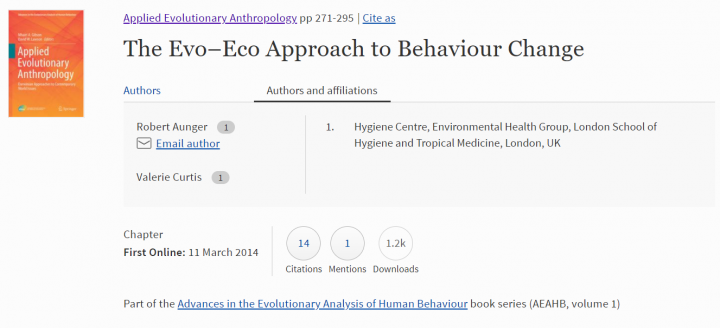The Evo-Eco Approach to Behaviour Change Aunger, R., Curtis, V. (2014)
We introduce a new approach to behaviour change called ‘Evo–Eco’ because of its intellectual roots in evolutionary biology and ecological psychology. This approach is based on the inference that brains evolved to provide adaptive behavioural responses to rapidly changing or complex environmental conditions. From this foundation, we develop a model with three basic components: the environment, which presents some challenge or opportunity to the individual; the brain, which produces potential responses to that challenge; and the body, which engages in interactions with the environment (i.e. produces behaviour) that changes that environment. The behaviours of interest to behaviour-change professionals typically occur in particular settings, which can be seen as a context within which these basic components interact. We report how the approach has been used to develop public health programmes, as well as to make novel predictions about behavioural causes (i.e. placement of new target behaviours within a routine) which have proved to impact on the ability to change a behaviour. The Evo–Eco approach thus deserves to be used by public health workers and others to change behaviour.
Bibliographic information
Aunger, R., Curtis, V. (2014). The Evo-Eco Approach to Behaviour Change Springer
Filter / Tags
English

